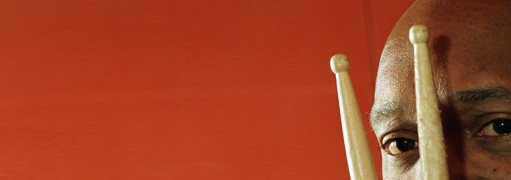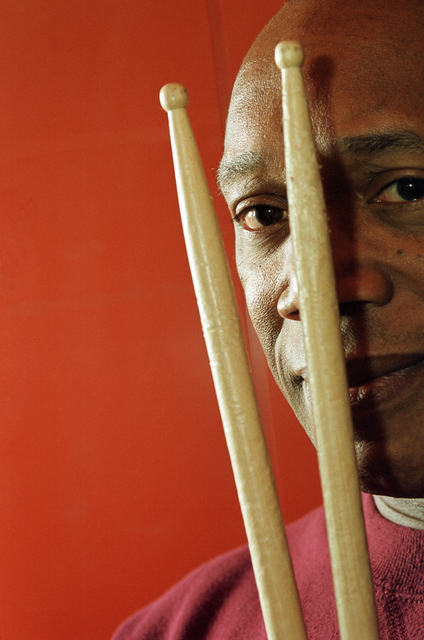The world of jazz shares one unfortunate attribute with classic literature: There are established artists about whom no discussion is permitted unless it reaffirms said greatness. That goes a long way in discouraging new listeners from joining the conversation. I’d like to get past that right away and say that Billy Cobham is “great” in a way that traditional jazz fans could never come to terms with. This explains why my introduction to Cobham came in the form of a half-listened-to cassette I found in my grandfather’s desk.By the end of the ’60s, Cobham had already worked with Horace Silver, George Benson and Stanley Turrentine before joining Miles Davis’ group and appearing on stunning recordings like Bitches Brew and the wild A Tribute to Jack Johnson. He provided an even more substantial contribution to Davis’ Live-Evil which—along with the aforementioned—was rejected almost unanimously by jazz fans for its unconventional use of electronics and rock and funk rhythms. Of course these are the Miles Davis records which continue to generate the most interest in each succeeding generation of young audiophiles. Go look them up right now if you’re unfamiliar; you’re probably reading this less than three feet from an internet connection. I’ll wait right here. These achievements easily could have been the creative peak of a lesser talent, but appearing on Miles Davis’ most exciting records was just a starting point for Cobham. He began writing and performing with English guitarist and former Davis bandmate John McLaughlin in definitive prog rock ensemble Mahavishnu Orchestra. In response to Mahavishnu’s propensity for sustained blasts of notes, my music theory prof pejoratively referred to them as “athletes.” He couldn’t have more tragically missed the point. Their muscular virtuosity only served to express McLaughlin’s deep-rooted Eastern spirituality with blinding intensity. Hovering around 70 years old, these musicians can still melt your face off. Along with keyboardist Jan Hammer—who would go on to compose the futuristic new wave “Miami Vice” theme song—bassist Rick Laird and violinist Jerry Goodman, Mahavishnu set not only a new benchmark for composition, innovation and musicianship but also drafted a blueprint for ambitious prog rock groups to come. Comprised of the fiercest personalities in music, Mahavishnu managed to produce three full-lengths from 1971 to 1973 before disbanding while recording their third studio album. Luckily Cobham was already hard at work producing his most concise statement, fusion/funk masterpiece Spectrum, released the same year. Any doubts about its timelessness have been put to rest as its relentless sampling over the decades attests. Several of Cobham’s compositions were snagged by such notables as Mantronix in the ’80s, Gang Starr, Common and Massive Attack in the ’90s, and the track “Stratus” is even featured in the fourth edition of the Grand Theft Auto soundtrack. Having released some 40 albums, it can be tough to choose which of Cobham’s works demand your attention. Apart from the records mentioned above, I absolutely recommend the Billy Cobham-George Duke Band’s “Live” on Tour in Europe not only as an amazing musical statement but also an excellent way to celebrate keyboardist and vocalist George Duke, who we lost this past August. This year marks the 40th anniversary of Spectrum, and Cobham is undertaking a US tour to celebrate. It lands in our fair city on Saturday, Sept. 28, at the KiMo Theatre. Touring bandmates include longtime collaborators Gary Husband on piano, Dean Brown on guitar and Ric Fierabracci on bass guitar. And you still have time to head down to your local record ranch, dig out some records and make your world a more beautiful place.










